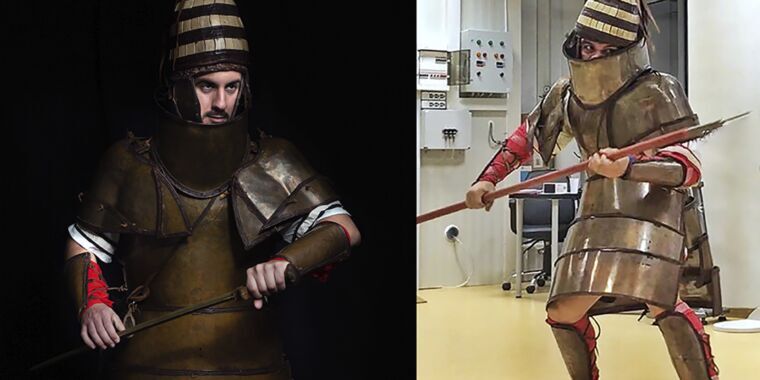- cross-posted to:
- archaeology
neat
This is the best summary I could come up with:
It took over a decade of research, elaborate numerical models, and 13 Greek marines fighting in it from dawn till dusk to prove it was surprisingly good at its job, despite its odd appearance.
“This made the Mycenaean warriors some of the best equipped in the Eastern Mediterranean in the Late Bronze Age,” says professor Andreas Flouris, a researcher at the University of Thessaly, who led the study.
This wasn’t just the product of hunches or bias; warriors were prominently featured in the Mycenaean art with numerous depictions showing their helmets, swords, spears, bows, and arrows in great detail.
“The doubts about the Dendra armor’s purpose—whether it was battle-worthy or purely ceremonial—rose from a combination of its physical characteristics, the context in which it was found, and interpretations of historical texts,” says Wardle.
Among all the embellishments added to boost The Illiad’s epicness, it describes things like the daily activities and maneuvers of the Greek army, and those seem to be in line with realities of late Bronze Age warfare, according to Flouris’ team.
Still, using Homer’s works as a source of knowledge about military operations was a bit like reconstructing modern warfare’s practicalities based on Rambo movies.
The original article contains 700 words, the summary contains 198 words. Saved 72%. I’m a bot and I’m open source!


